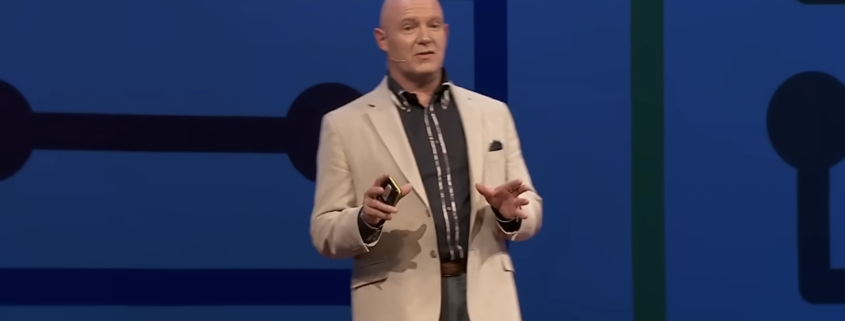How to speak so that people people want to listen | Julian Treasure
This is one of my all time favourite TED Talks.
Julian is a sound and communication expert, author and international key note speaker.
“What would the world be like if we were speaking powerfully to people who were listening consciously in environments which were actually fit for purpose?”
His talk has amassed nearly 40 million views on YouTube and explains to the viewer his ‘Seven Deadly Sins’ of speaking, his four cornerstones to make our speech more powerful, the toolbox we can use to say our speech better, and his speaking warm up exercises.
Julian Treasure’s Seven Deadly Sins of Speaking
- Gossip – “Speaking ill of somebody who’s not present”
- Judging – “It’s very hard to listen to somebody if you know that you’re being judged”
- Negativity – “It’s hard to listen to somebody when they’re that negative”
- Complaining – “complaining is viral misery, It’s not spreading sunshine and lightness on the world”
- Excuses – “They pass it [blame] on to everybody else and don’t take responsibility for their actions”
- Embroidery, exaggeration – “exaggeration becomes lying, and we don’t want to listen to people who are lying to us”
- Dogmatism – “Confusion of facts with opinion.”
Julian Treasure’s Four Cornerstones – HAIL
Julian talks about his four “really powerful cornerstones, foundations that we can stand on if we want our speech to be powerful and to make change in the world.”
Honesty – Be clear and straight
Authenticity – Be yourself
Integrity – Be your word
Love – Wish them well
Julian Treasure’s Toolbox
According to Julian, we all have a toolbox which contain really powerful tools we can use that will make our speeches much more powerful.
Putting all of these tools together can ensure that when we have something to say, we know that it will have the power and affect that we wanted it to have.
Register
- “We vote for politicians with lower voices because we associate depth with power and with authority”
Timbre
- “We prefer voices which are rich, smooth, warm, like hot chocolate”
Prosody
- “It’s the root one for meaning in conversation.”
Pace
- “I can get very excited by saying something really quickly, or I can slow right down to emphasise, and at the end of that, of course, is our old friend silence.”
Pitch
- “pitch often goes along with pace to indicate arousal, but you can do it just with pitch.”
Volume
- “Some people broadcast the whole time. Try not to do that. That’s called ‘’sodcasting’.”
There are some really valuable public speaking skills that I have taken from this video as well as the the other TED Talks I use to enhance my public speaking and presentation skills.



